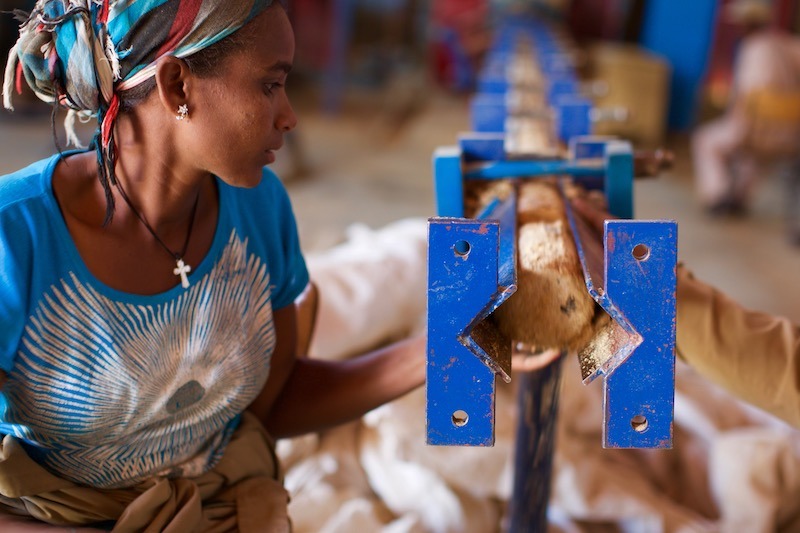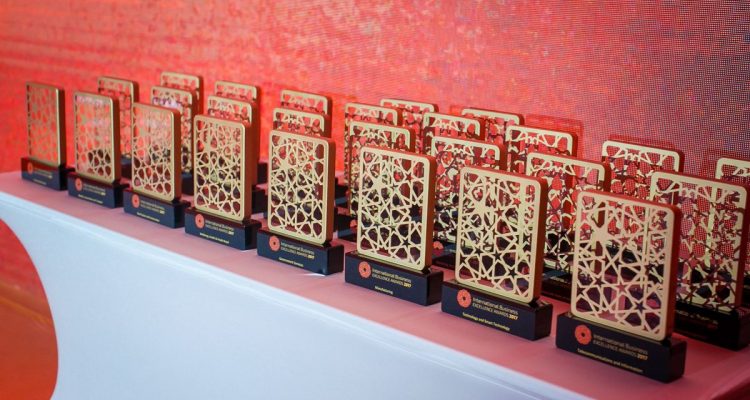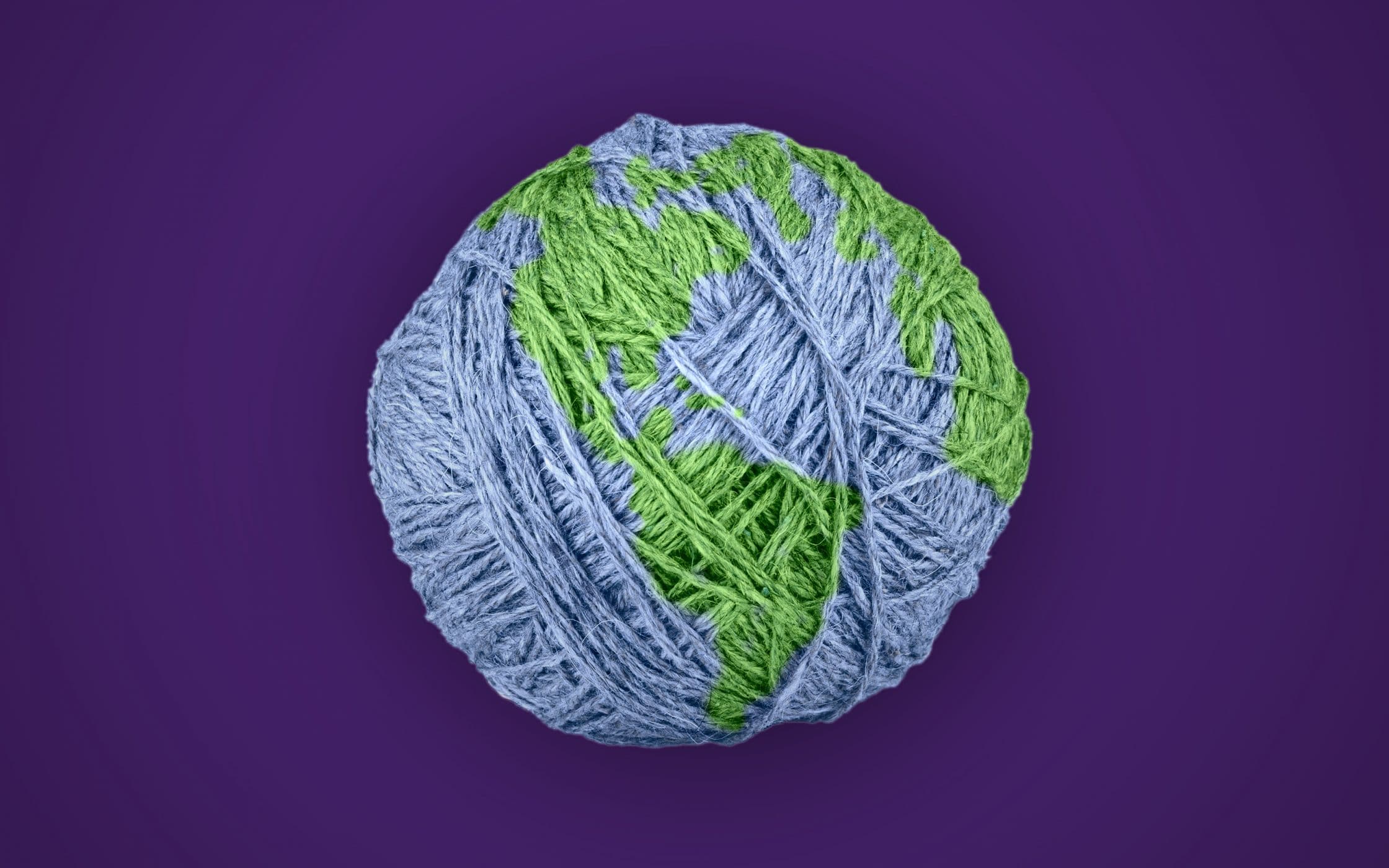Direct Trade Coffee
Consumer Goods

November 9, 2020, 10:27 am
By Kim Thompson – Co-Owner & Managing Director at RAW Coffee Company
When the words “direct trade” are used in the world of coffee, it’s a term used to describe the relationship between coffee roasters and the farmers who grow the coffee that we purchase.
For RAW, the main benefits are traceability, improved quality of the beans we buy, customized processing options, improved communication, and the fact that the farmer is paid directly the agreed price he/she earns. We have seen a tangible improvement in the quality of the green beans we buy, year on year from the farmers and co-operatives we have selected to work with, as they understand exactly the quality that we are looking for and we have a clear and open dialogue. This business model requires direct and accountable communication and trust at all levels; the farmer, the roaster and ultimately the consumer.
Trips to origin are a real perk of the job. We continue to strengthen and learn about our supply chain, the intricacies of the industry, to understand the very real challenges the growers and processers face, and we have realized that some of third party certifications that we initially believed were important when we first launched the company 13 years ago (ie Organic, Fair trade, bird friendly, rainforest alliance), are often not actually helping the farmers in the way we originally believed they were. What does actually help the farmers and co-operatives is forming strong professional but friendly relationships with our partners at origin, relationships where the farmers know and trust us, and we commit year on year to volumes we will purchase from them which gives them some peace of mind and ability to manage their cashflow at their end of the chain.
When visiting coffee growing countries (called Country of Origin) we want to have more control over the quality of the coffee, particularly the processing methods, that are used to process the coffees we buy. Processing is a term used within the industry to denote the procedure of removing the outer layers of coffee fruit and skin from the inner seeds which are called beans. The way in which this is done greatly impacts the resultant sensory profile of the beans that we roast and drink. There are three main processing techniques, Sun-dried or ‘Natural’, Washed or Wet-process and Honey processed. It is possible to buy the same green beans that are processed using these three different methods and they taste completely different.
“It is also quickly apparent when you visit a coffee farm if the immediate environment (land, wildlife, water, forests and people) are being respected. If the numerous children that are often running around look well fed, if the women have a voice (as they usually make up a large percentage of the labor force), if there is a community school, and if the local processing mill looks clean and well organized, this gives us some insight into how the money from coffee farming is being distributed and the overall health of the community as a whole.”
Being able to access coffees which have been processed differently and bring these back to our customers in Dubai is something we are really passionate about. This is such a simple way to introduce the people to the world of specialty coffee and start up a conversation about the beans that people are buying. We are an artisan craft business at the end of the day, we like people to know where their coffee comes from and how it differs from other coffees on the market and we are finding our customers are increasingly discerning and interested in this aspect of the coffee they drink, both from an educational point of view but also as home enthusiasts.
Another element to travelling to origin is that we have more of an impact on social issues in the communities surrounding the coffee farms. Being able to meet with farming communities, usually with a translator, we can make sure there are no pesticides or herbicides being used, we can check which trace minerals they might be fertilizing with and to understand how this helps improve the quality of the coffee tree (without negatively impacting the health or quality of the soil). There are always internal challenges managing their pickers and the financial balancing of making their income last, and to make necessary improvements at washing stations, or new trucks needed to get the fresh cherries to processing. We have seen the social premiums we pay make a tangible difference.
It is also quickly apparent when you visit a coffee farm if the immediate environment (land, wildlife, water, forests and people) are being respected. If the numerous children that are often running around look well fed, if the women have a voice (as they usually make up a large percentage of the labor force), if there is a community school, and if the local processing mill looks clean and well organized, this gives us some insight into how the money from coffee farming is being distributed and the overall health of the community as a whole.
We have chosen to move towards more direct trade relationships and to foster long term mutually beneficial relationships with farmers and producers at our partner origin countries. As an example, to best describe the importance of this Direct trade, here is a case study from one of our RAW partners in Myanmar.
Myanmar where we first visited in March 2018, we managed to purchase the total crop of the harvest from a small very isolated region called the Ga Naing Yar community (a total of 14 sacks). We also committed to purchase all of 2019 year’s crop as they guaranteed the same amazing quality, knowing this allows the community to plan on how they want to spend their income for the year. We returned to film and document the harvest when they picked this season’s crop to film the process and the journey of what our involvement means to these people, and to also share with them the images at this end of the supply chain, so they can see their coffee delivered to you and share your experience.
We took our then training manager, now Quality control and Roastery manager Dinesh, with us on our second trip to Myanmar. Dinesh is from Nepal and started with us more than 10 years ago with no coffee knowledge. He has learnt with us and become an excellent role model; so it was special to see him brewing their coffee for them and talking to them about what we do with their beans, how we roast them and how we introduce their coffee to our customers and community. For many of the farmers it was the first time they had ever drank their own coffee or been able to understand the implications of the improvements they had made to the harvesting and processing of their natural dried green beans. They know they earn more money but to be able to discuss the tastes and attributes of their amazing coffee, helps them to appreciate the positive benefits of the additional workload and attention to detail they apply for us. This is a symbiotically beneficial experience.
We have seen communities collectively build access roads into their isolated regions or bring power lines in, buy chickens or build schools. Giving them the financial security to plan for their future opens so many doors, giving a higher standard of living and us a higher quality coffee year on year.
This village formed a coffee co-operative that is a core representative of the 51 families that form the entire community. There is a tangible flow on effect from the success of this group of farmers as the community learns of the benefits of being a part of this community. They are seeing improved techniques being shared with the farmers so they can also earn more money from their coffee (and neighboring communities are seeing the increased money coming into the community and want to adopt the new farming practices). Before the farmers, often the women, grew their coffee near their houses and used it as a cash group, taking their coffee to the local weekly market and selling it as, what we call, C grade coffee (commodity grade). They would individually pick, process and travel to markets earning a third of what they are achieving now.
They have had assistance to build raised drying beds for their natural sun-dried coffee, and this alone is responsible for an incredible improvement in the cupping score of the coffee. Together they have also been able to pool their money to hire transportation to the mill, and processing stations which saves them money. The flow on effect from the roasters and the farmers actually meeting is incredibly beneficial in both directions.
As we continue to develop stronger relationships, and the UAE consumer base matures, and understands more about the ethics behind their cup, we have re-evaluated our core pillars here at RAW moving away from Fair Trade and Organic towards fully traceable Direct trade, always still ethical and always fresh. If there is one thing we know when sourcing and buying our coffees, it is that if we do not respect, value and pay a fair price to our farmers, and forge strong relationships, they will remove the coffee trees and grow another crop to better support their families, it’s that clear cut.










